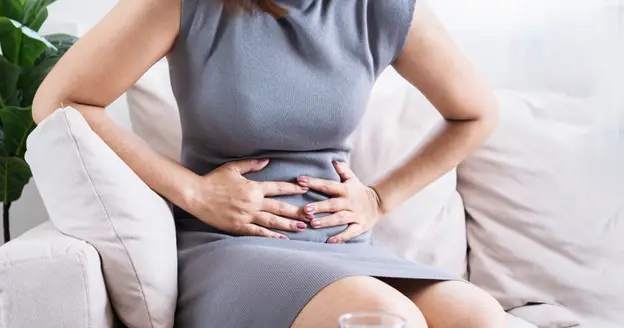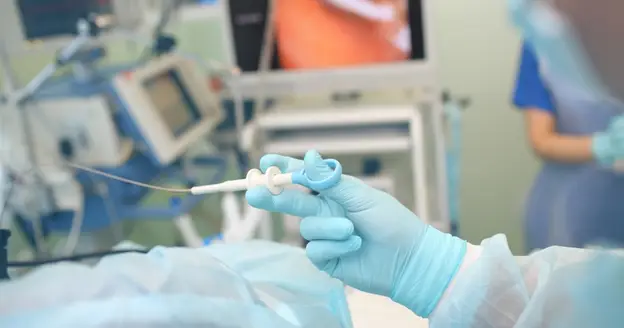Can endoscopy detect h pylori? Learn how doctors use this test to find bacteria and what steps to take next if you’re dealing with stomach problems.
Stomach pain can be confusing. One day, you feel fine, but the next day, your belly is sore, bloated, or just not right.
You try antacids or skip meals, but nothing seems to help.
If that sounds like you, there might be something deeper going on.
One cause a doctor usually looks out for is H. pylori, a type of bacteria that lives in the stomach.
So, can endoscopy detect H Pylori?
A lot of people want clear answers to this popular question. So, let’s take our time and talk through this in a way that makes sense.
We’ll go over what H. pylori is, how an endoscopy works, and when a gastroenterologist might suggest doing this test.
What Is H. Pylori and Why Does It Matter?
H. pylori is short for Helicobacter pylori. It’s a kind of bacteria that can live in the lining of your stomach.
A lot of people have it and don’t even know.
But sometimes, it causes problems like:
- Stomach pain or burning
- Nausea
- Bloating
- Feeling full quickly
- Weight loss
- Ulcers (which are like small wounds in your stomach)
If left untreated, H. pylori can lead to more serious issues. That’s why it’s important to catch it early.
What Is an Endoscopy?
An endoscopy is a test doctors use to look inside your stomach.
They use a long, thin tube with a light and camera on the end.
It goes through your mouth and down into your stomach. Sounds scary?
It’s really not. You’ll usually be given medicine to help you relax or sleep through it.
Now, can endoscopy detect h pylori? Yes, it can, but with a little help.
The doctor takes a tiny piece of tissue from your stomach. This is called a biopsy.
That small sample is then tested in a lab to check for H. pylori.
So, while the camera can’t “see” the bacteria itself, the test done with the sample can tell if it’s there.
Other Ways to Find H. Pylori

An endoscopy isn’t the only way to check for H. pylori. Sometimes doctors start with easier tests like:
- Breath test – You drink a special liquid, then breathe into a bag. If H. pylori are in your stomach, it will show up in your breath.
- Stool test – These check for the bacteria in your poop.
- Blood test – It checks if your body has made antibodies to fight H. pylori. But this one isn’t always accurate if you had the infection before.
If these tests don’t give clear results or if your symptoms are bad, your doctor might suggest an endoscopy next.
Why a Doctor May Recommend Endoscopy
So, why not just do a breath or stool test and call it a day? Good question.
Here’s why a doctor might choose endoscopy:
- You’ve had stomach problems for a long time
- Other tests didn’t show anything
- Your symptoms are getting worse
- You’ve had ulcers before
- You’re at risk for stomach cancer
An endoscopy lets the doctor see your stomach up close and take samples for testing.
If anything looks red, swollen, or not normal, they can take a closer look.
If you’re thinking about getting help, searching for a gastroenterologist near me can get you started.
What Happens Before and After an Endoscopy?
If your doctor says you need this test, here’s what you can expect.
Before the test:
- You’ll need to stop eating and drinking for several hours.
- Your doctor may ask you to stop taking certain medications.
- You’ll need someone to drive you home afterward since you might be sleepy.
During the test:
- You’ll be lying on your side.
- The doctor gives you something to make you relaxed or sleepy.
- The test usually takes about 15–30 minutes.
After the test:
- You might feel sleepy or have a sore throat.
- Some people feel bloated or gassy for a little while.
- You’ll get your results in a few days, especially if they did a biopsy.
What If the Test Finds H. Pylori?
If H. pylori are found, don’t worry—it’s treatable. Your doctor will probably give you:
- Antibiotics – To kill the bacteria
- Acid reducers – To help your stomach heal
You’ll need to take the medicine for about 2 weeks.
It’s very important to finish all of it, even if you start to feel better.
If you stop early, the bacteria might come back stronger.
After the treatment, your doctor may test you again to make sure the bacteria is really gone.
This might be another stool or breath test.
What If the Endoscopy Shows Something Else?

Sometimes, the test finds other problems, like ulcers or swelling in your stomach lining.
In that case, your doctor might give you different medicines or ask for more tests.
If you live in Maryland, there are skilled gastroenterologist Baltimore that can help you.
They can help you figure out what’s going on and what to do next.
What About Colonoscopy?
While an endoscopy looks at your stomach, a colonoscopy checks your large intestine (your colon).
It’s used when you have problems like:
- Blood in your stool
- Long-term diarrhea or constipation
- A family history of colon cancer
If your doctor wants to check both your stomach and colon, you might need both tests.
When Should You See a Gastroenterologist?
If your stomach pain won’t go away, or you’re always feeling full, tired, or sick to your stomach, it’s time to talk to a doctor.
A gastroenterologist can help you get to the bottom of it.
Don’t wait too long. It’s easy to think, “Maybe it’ll get better on its own.”
But if it doesn’t, you’re stuck feeling miserable. Getting tested could help you feel better faster.
Search for a gastroenterologist near me if you’re ready to take the next step. Your health is worth it.
Conclusion
So, can endoscopy detect h pylori?
Yes, it can—when the doctor takes a small sample during the test and checks it in a lab.
While there are other tests like breath and stool tests, endoscopy is helpful when your symptoms are serious or other tests aren’t clear.
If your stomach’s been bothering you for a while, it’s okay to admit it’s time for help. A gastroenterologist can give you real answers. You don’t have to guess anymore.
A lot of people wait too long to get checked out. Maybe you’ve already done that. But now you know more.
It’s not too late to do something about it. You deserve to feel better. Don’t keep living with pain when help is out there.



